You’re probably familiar with the original seven wonders of the world: the great pyramid of Giza, the hanging gardens of Babylon, the statue of Zeus at Olympia, the colossus of Rhodes, the lighthouse of Alexandria, and the temple of Artemis. But did you know that a foundation named the “new seven wonders of the world” in 2007?
These new seven wonders of the world were chosen through online voting. See if you agree.
The Pyramid at Chichén Itzá (before 800 A.D.) Yucatan Peninsula, Mexico
Chichen Itza is a Mayan pyramid that has been around since between 550 AD and 800 AD. It was mainly used for Mayan ceremonies before being abandoned until 900 AD. Its name means “at the mouth of the Itza well.” It’s located on the Yucatan Peninsula in Mexico. Climbing to the top of the pyramid is currently forbidden.
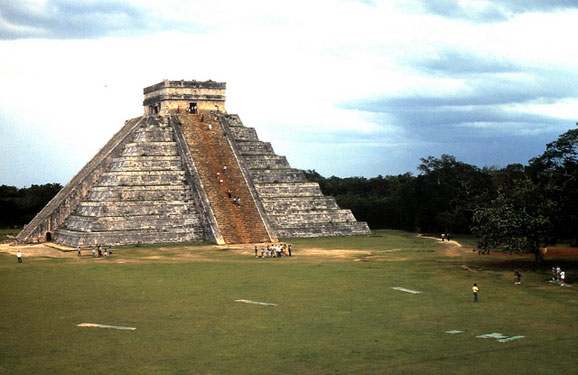
Credit: OliBac (via Flickr)
Credit: Wikipedia
Credit: Wikipedia
Christ Redeemer (1931) Rio de Janeiro, Brazil
Christ the Redeemer is a statue of Jesus Christ and is located in Rio de Janeiro, Brazil. It is the fifth largest statue of Jesus in the world and is at the peak of a mountain. It was built from 1926 to 1931. Despite having lightening rods installed, it was damaged by lightening in 2008. It has since been repaired.
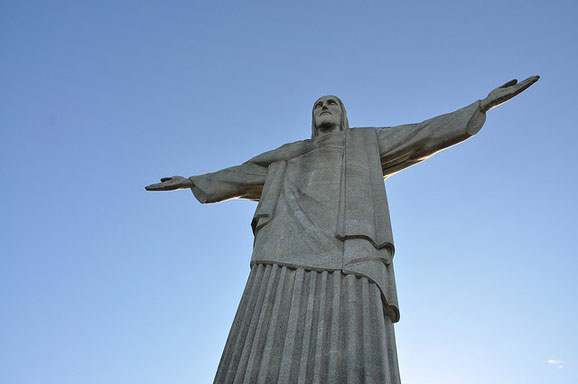
Credit: Mike Vondran (via Flickr)
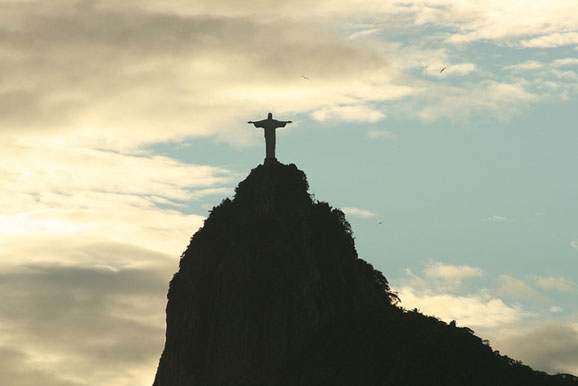
Credit: Lima Andruška (via Flickr)
Credit: bossa67 via Flickr
The Roman Colosseum (70 – 82 A.D.) Rome, Italy
The Roman Colosseum was built about 2000 years ago and was used for Roman sports at the time, namely gladiator games in which men fought each other and animals to the death. Because of tourists taking away pieces of it, the Pope had to forbid the removal of stone from it. The Colosseum itself is built from blocks of travertine stone, which were taken form the quarries near Tivoli and brought to Rome on roads built just for that purpose. The Colosseum had 45,000 sitting places and 5,000 standing places. Under the arena was a large network of tunnels that were used for the gladiators, animals, and slaves.
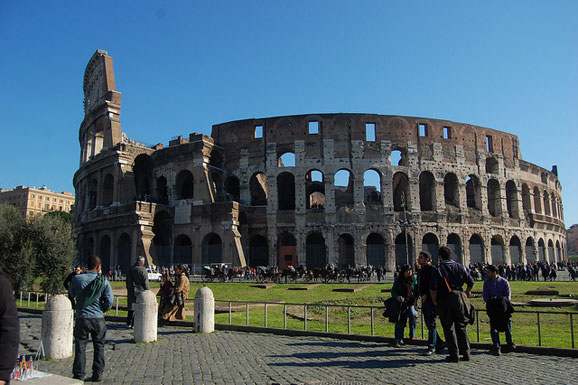
Credit: Nisha D (via Flickr)
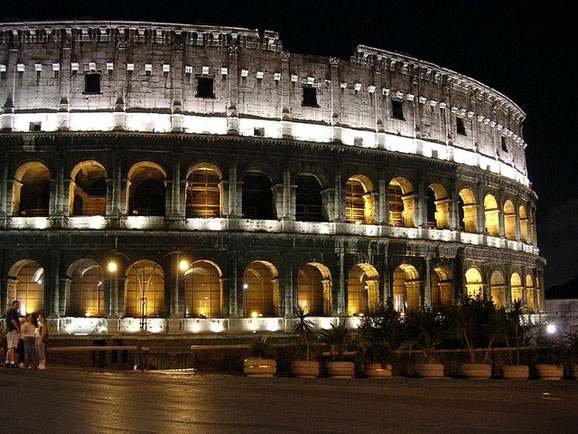
Credit: Randy McEoin (via Flickr)
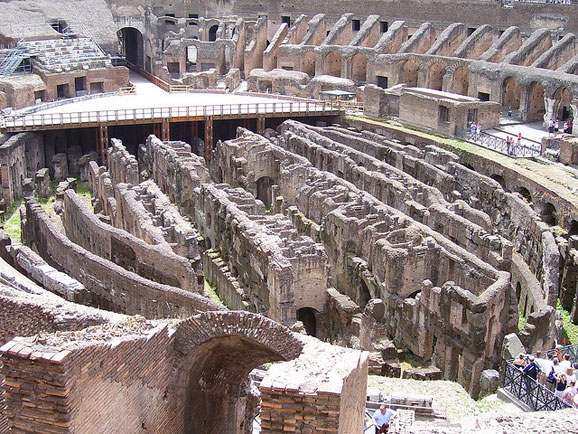
Credit: Elliott Brown (via Flickr)
The Taj Mahal (1630 A.D.) Agra, India
The Taj Mahal was built over a twenty two year period, completing in 1648 C.E. It was built by the Muslim Emperor Shah Jahan in memory of his wife, Queen Mumtaz Mahal. It is built entirely of white marble and many feel it’s architectural beauty has never been surpassed.
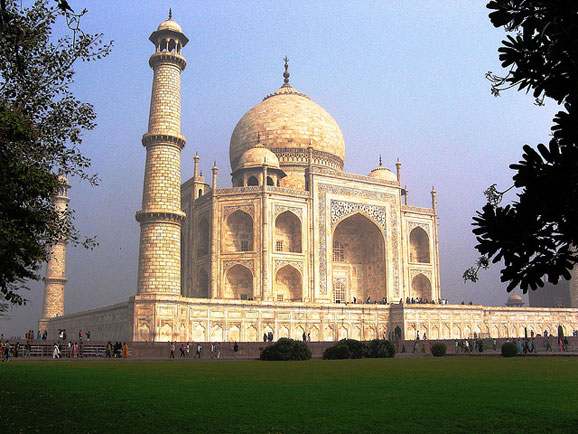
Credit: Ramesh NG (via Flickr)

Credit: Ashley Coates (via Flickr)
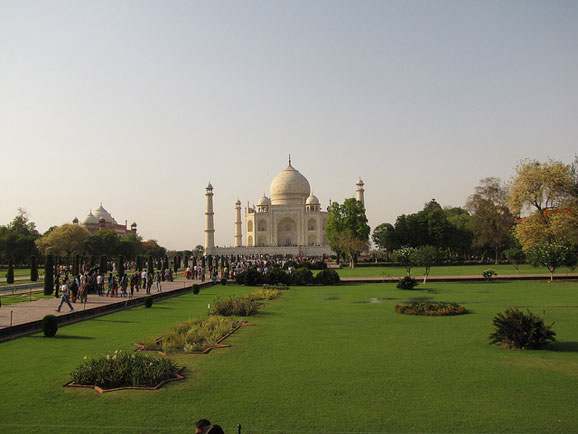
Credit: Christopher John SSF (via Flickr)
The Great Wall of China (220 B.C and 1368 – 1644 A.D.) China
The Great Wall of China is the world’s longest man-made structure, reaching over 6400 km. When it was in the height of its use during the Ming Dynasty, over one million guards manned the wall. Because of the difficulty in transporting building material, as much local material as possible was used. Also, workers that died in the construction were buried in the wall. The wall is actually a joining of many smaller walls that were built up over many years. The original wall was built using earth, stone, and wood, but during the Ming Dynasty, brick was the main building material because it was easier to work with.
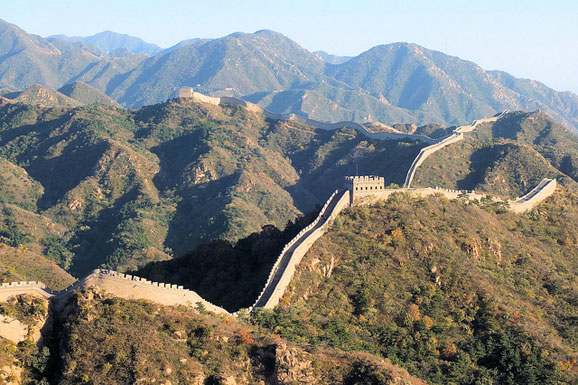
Credit: Keith Roper (via Flickr)
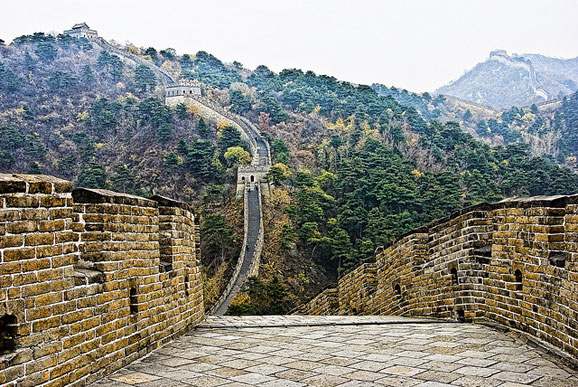
Credit: Francisco Diez (via Flickr)
Credit: Wikimedia
Petra (9 B.C. – 40 A.D.), Jordan
Petra is a historical city in Jordan and is famous for being carved into the mountains surrounding it. It’s thought to have been established as early as 312 BC. It was the home of the Nabatean kingdom, which was known for its advanced irrigation systems.
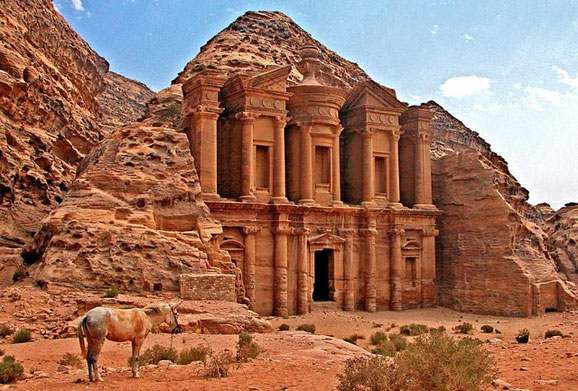
Credit: Seetheholyland.net (via Flickr)
Credit: Wikimedia
Credit: Argenberb via Fotopedia
Machu Picchu (1460-1470), Peru
Machu Picchu is a result of the Inca Empire. It’s made of cut stone fitted so closely together without mortar that a knife blade can’t penetrate its cracks. It is situated on a high ridge and is bordered by a river on three sides. It is located in Peru. The walls of Machu Picchu were built with details that protect it from collapsing during earthquakes, such as the doors and windows being trapezoidal and tilt inward from bottom to top. Many people travel on foot to Machu Picchu every year to marvel at the beauty and architectural ingenuity.
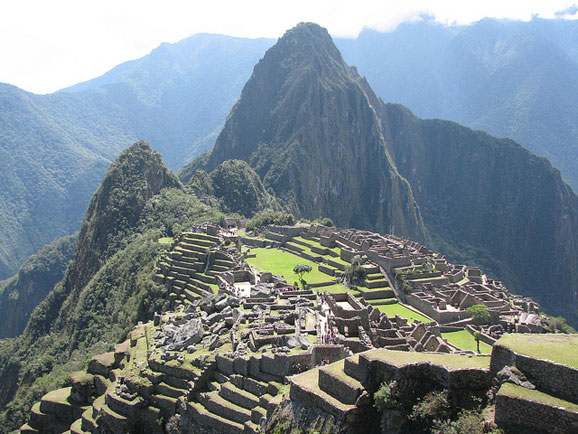
Credit: OsvaldoROVE (via Flickr)
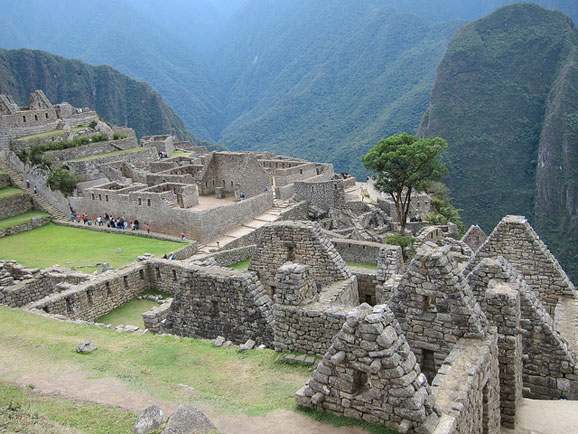
Credit: fabulousfabs (via Flickr)
Credit: matito via Flickr
Have you ever visited one of these new seven wonders of the world? Which one, and what did you think of it? Is there one in particular that you’d like to visit? Share your thoughts with us in the comments.
Note: This post was originally published on September 21, 2008. It was updated with new images and background on each of the new seven wonders of the world on its currently-listed publication date.







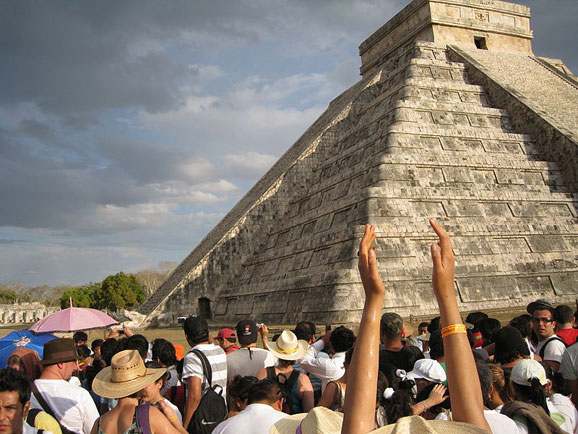
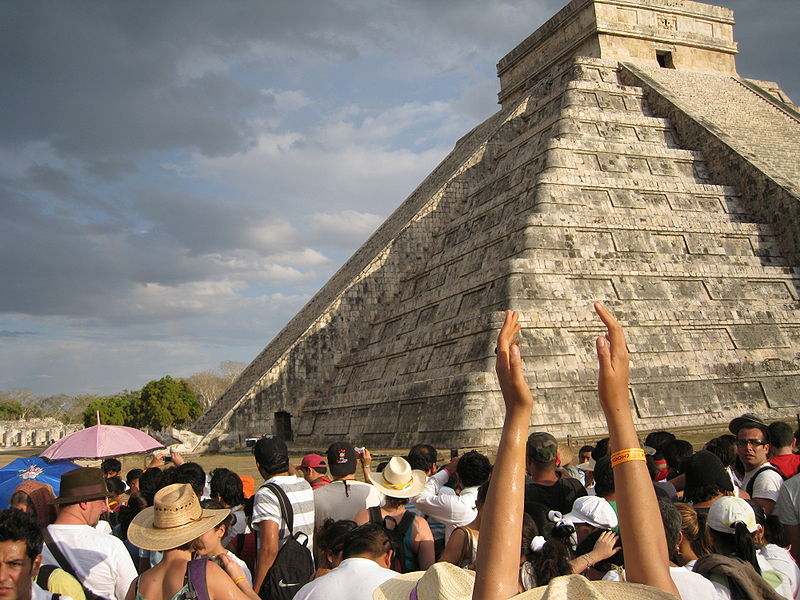
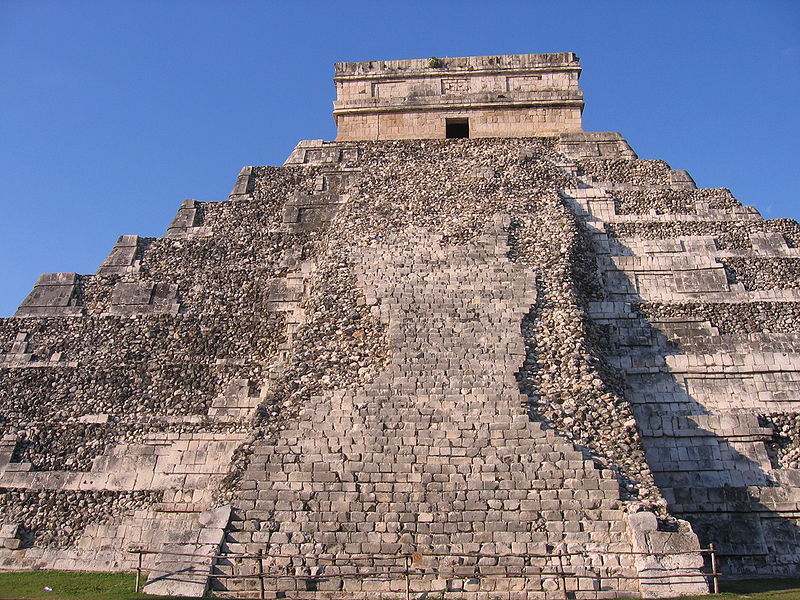
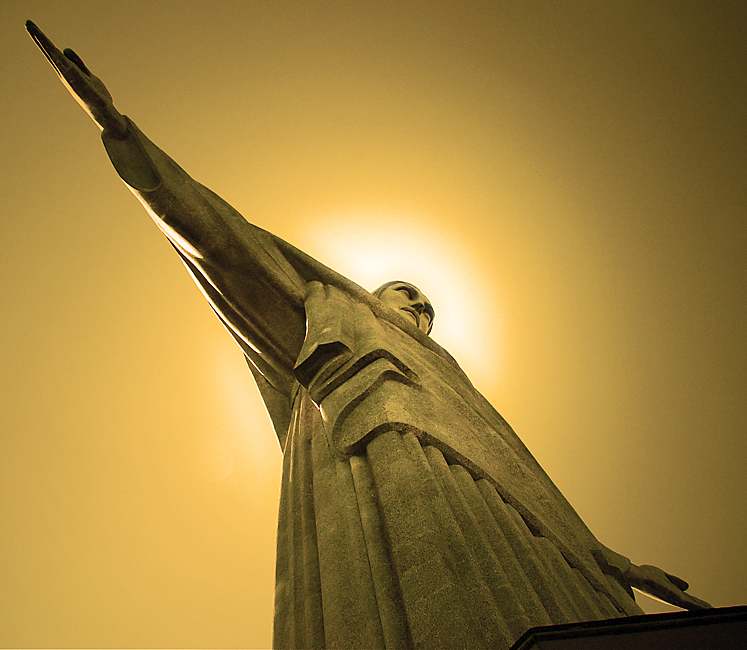
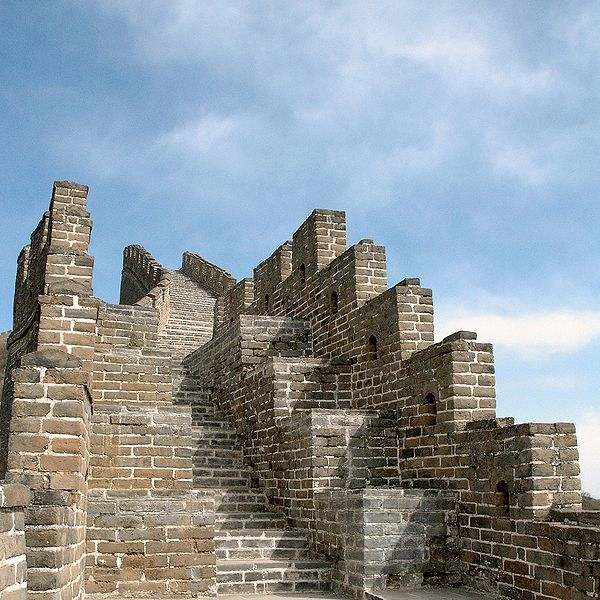

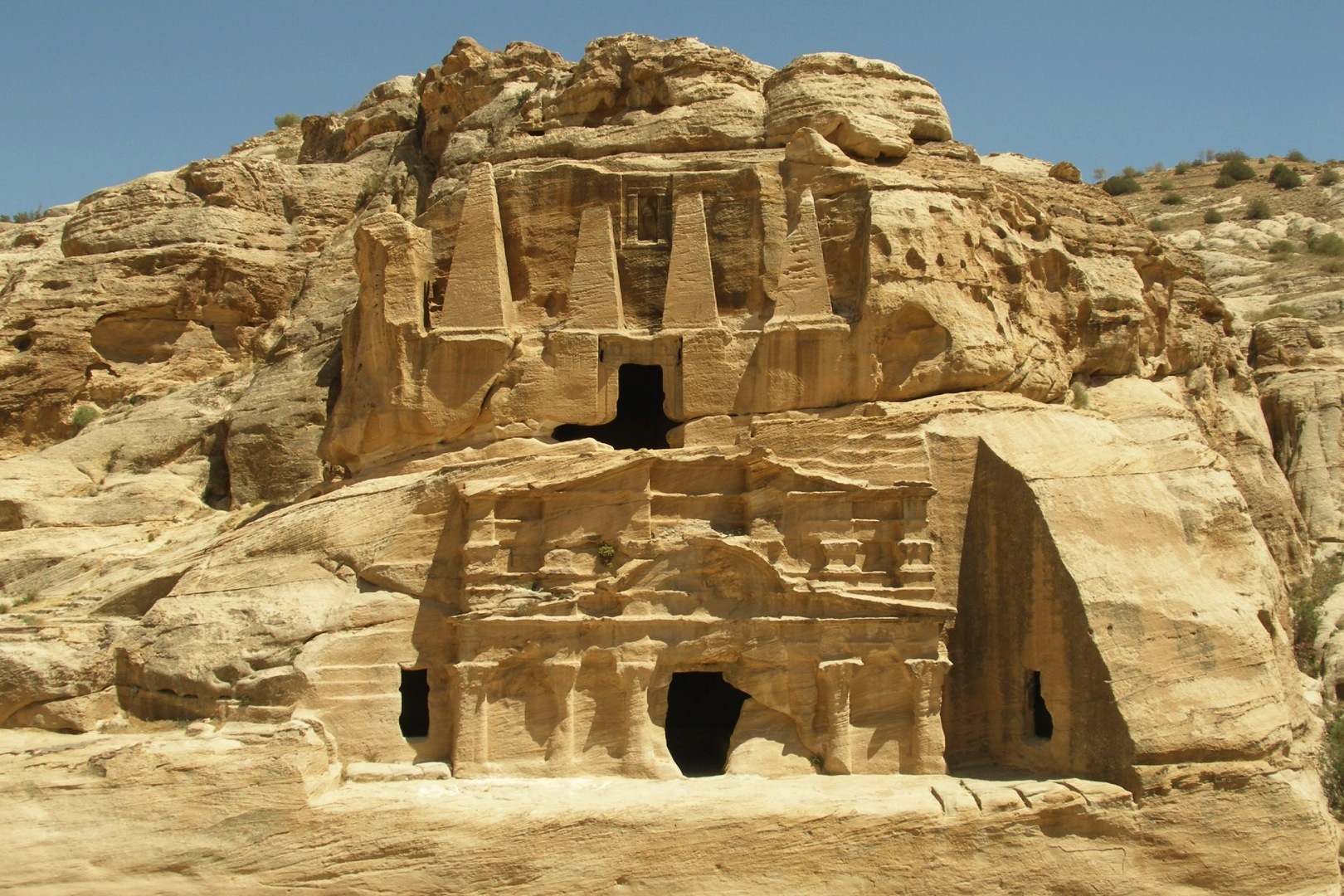
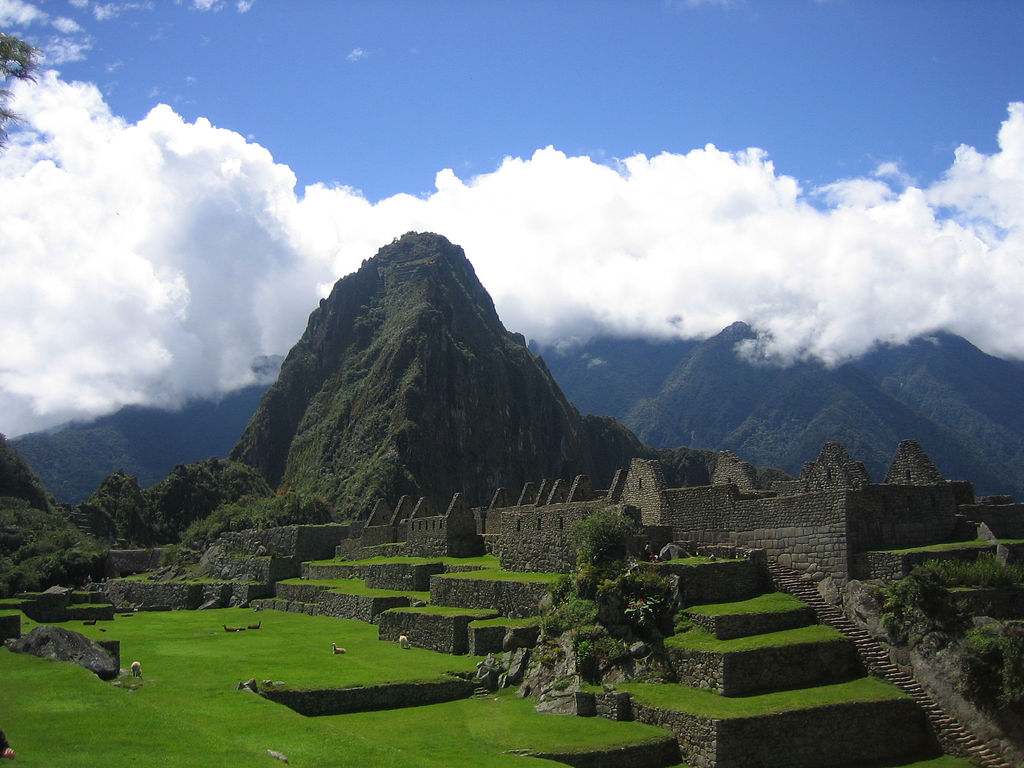
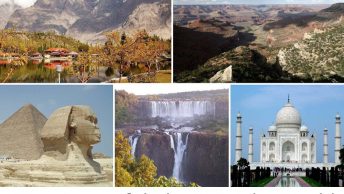





best and awesome!!!
machu picchu!!!its the coolest!!!
it should be in the list next time too!!!
may u all work like this everytime and give us such beautiful pic
best n awesome…..i luv it….
In Wonder list Taj Mahal is in Top Position I feel proud to be an indian
Taj is Best & Aweeeeeeeesome
THANKS!! for the pictures thanks for the blogger of this cuz the pictures here i used in my presentation in school!! =D XD
ACTUALLY,MY FAVOURITE IS CHRIST REDEEMER I DUN KNOW Y BUT I JUST LOV IT 😀 …..N I OSO LOV THE OTHERS …….
sana ang
christ Redeemer (1931) Rio de Janeiro, Brazil
great wall of china at machu pichu peru ay makasama sa 7 wonders of the world
guddavalaga unnayi rooooooooooooooooooooooooooooooooooooooooooooooooooooooooo!!!!!!!!!!!!!!!!!!!!!!!!!!!!!!!!!!!!!!!!!!!!!!!!!!!!!!!!!!!!!!!!!!!!!!!!!!!!!!!…………………………………………..
awesome…………..
nice pics
they’re wow, i hope banaue rice terraces nd the underground river in palawan will make it to the top list this year.
actually there are many awesome wonders of the world and it is more than 7 ….. see how omnipotent is our God …..
Oh my got! its a the new 7 wonder of the world!
Please open your eye see the world again and say again!
best and awesome!!!
machu picchu!!!its the coolest!!!
it should be in the list next time too!!!
may u all work like this everytime and give us such beautiful pic
nice pictures!
taj mahal is best because its form india
who discover machu picchu
TAJ MAHAL IS THE BEST
all pictures are beautifull. but i like taj mahal the most
VERY BEAUTIFUL
hey i want 1680×1500 resolution wallpapers
The history of the world is unknown and human being of this world are always looking the development of the society but the seven wonders and other wonders of the world are really eyewitnesses of the developed of the world. I am really happy and pleased to see this wonderful pictures of the seven wonders of the world.
ya dummies you forgot the grand canyon
and you forgot the pyrmids in egypt wow you people are dumb
wonderful picture
The New 7 Wonders Of The World is really wonderful pictures, BUT it is available in 3D specialty then it is MOST WONDERFUL in the world.
You are right, as per today’s technology it should be in 3D.
Anybody take a step to develop in 3D.
Then pepoles enjoy like a flying in helicopter around this…. Hope in feature
wow! fantastic
I love the seven wonders of the world, but, could you do the seven NATURAL wonders of the world??? That’s what I was looking for. 🙂
Thanks,
Bubbles
I love the seven wonders of the world, but, could you do the seven NATURAL wonders of the world??? That’s what I was looking for.
Thanks,
Bubbles
P.S. i had to re-post this because I put in the wrong email!!! <3 B-)
[…] The New 7 Wonders Of The World Photos. The New 7 Wonders Of The World. By Hasan в‹… September 21, 2008 в‹… Post a comment … […]
It is so precious & percular venue dat i wish me&my wife could ever& try 2 visit especially d pyramid of Egypt.
[…] The New 7 Wonders Of The World Sep 21, 2008 … those are really very good photos but in all of those taj mahal is the great wonder of the world … […]
awesome wonders. too much beautiful is TAJ MAHAL.
really……………………………………………………. u hav’nt see present wonders
WOWWWWWWWWWWWWWWWWW!!!!!!!
THESE ARE VERY NICE,WONDERFUL, AWESOME,TWOSOME,THREESOME,ETC
I am lucky that I live in a country which consists atleast 1 wonder.TAJ MAHAL
wow ! its great places ……….
& GREAT WOUNDERS
what a wonder & beautiful “The seven Wonder of world” I have no comments to say on it. It is like a “Heaven”.And I am proud that I am Indian and from India Taj-Mahal is also selected. niceeeeeeeeeeee.
wonder……full. these all emages just amaging.In these wonders indian tajmahal are also included its happpy thought for all indians.
thank u….
JAI HINDA
more wonders r there
wonder……full. these all emages
7 wonders
very thanks for site
jay hind
i love world
i love my mother india
Hira Mukund Desaale
gundyachapada
shahapur
thane
maharashtra
india
asia.
i hope Sundar Bans of West Bengal India will also be considered as the 7 wonders of world
aSA
really nice collection,,,,,,,,,gud
…..it was so awesome…
i love all this post and like all wonders such a real wonder of the world like this……………….
really beautiful
wow
really khatarnak photo
i really like it for all the student that want to see this wonderful of the word,im surelly they will learn all about it,and also they will enjoy every places of it.
nice pictures. Taj mahal is beautiful because it is the most beautiful one.Ever and ever TAJ MAHAL is a part of 7 wonders.
nice pictures. Taj mahal is beautiful because it is the most beautiful one.Ever and ever TAJ MAHAL is a part of 7 wonders.
i vote the tourist spot of the philippines under water river very nice
nW its mah dream…..
2 visit….unbelevbe beautyyyy…………
these pictures are really awesome and amazing. pics were taken in different angles.
machu pichu pic really suprb………………..no words to describe it…………….
really fantabulous photographs machu pichu is really fantastic
I really Want to know the Result Of this kind of compitition now!!! Philippines is the BEST!!!
NICE WEB SITE.
WAH TAJ WAH TAJ
realy these pictures R amazing awesome & i promise 2 all of u that one day i will go 2 see each an every one wonder with my wife………………………………………remember me………
Really nice pictures. What is the specialty of Peru thing?
all the pics are fantastic and I love the seven wonders of the world.
all pics are fantastic and i love all the seven wonders of the world
Am impressed good its very good
actually, i don’t think they are the real ones, aren’t they?
YES THEY ARE…. I’M FOM INDIA AND TAJ MAL IS IN MY COUNTRY
i really wish that if i could visit them 1day ins
All pics r fantastic and i love all seven wonders of world.but i like TAJ MAHAL the most because it is one of best building or fort that i have seen ever.PAKISTAN ZINDABAD.
To me all are wonders, just thing of something by doing it that all wonders.
All 7 wonders are amazing.,specially TAJ MEHAL.Indian Govt. must issue visa to see this best wonder of the world.It is every one right.
This year, 2012, Table Mountain in Cape Town, South Africa was voted a natural wonder with emphasis on the word “natural” meaning, “Not man-made”. When do you suppose we will be able to view the updated list?
tajmahal
I am South African from Indian extraction and i live in Cape Town, location of the most recently installed seven wonders, TABLE MOUNTAIN. This most certainly suggests an elimination factor.One of the above wonders have lost its position. when can we expect an update?
simply great
amazing, hope one day ill be THERE….thank the lord he made thise beautyful places 🙂
really cool and naturals places its certain that almightly Allah has given us the talent and required power to build mansion like taj mahal and so on
Beautiful, how i wish i could physically visit all these places. Good job. Though there are quite some locations in Africa also.
still the architecture of greatwall,tajmahal,itza wondering all over the world…
proud to be a human…in the sense where those wonders are not there in other planets….
Definitely I can’t see these images directly, But I felt very much happy and impressed.
THIS ARE THE BEST PICS THAT I HAD EVER SEEN IN MY LIFE MY GOD ITS 2 GOOD ONLY FORTUNATE PEPOLE ARE ABLE TO VISIT THIS PLACES
Wonderful Pictures
wow!!! awesome….. wonders of the world…. let me dream to visit one day…!!!
wqw i am very impresd the wonder is beautyful